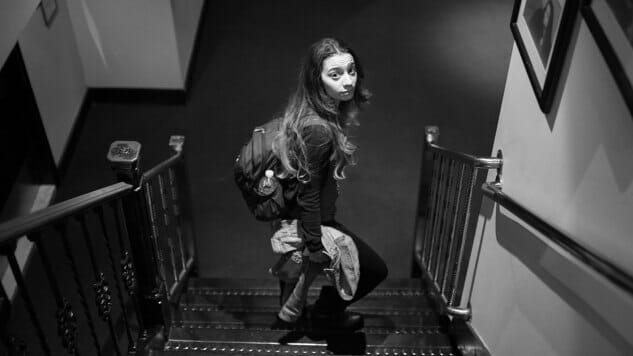Talking Craft, Crafts and Cats with Comedian Liz Miele

Artists like to take the art out of art. The playwright and screenwriter Noah Haidle once described a play as an equation: “You set up a problem and you solve it.” In a 2012 video for the New York Times, Jerry Seinfeld likens jokes to jigsaw puzzles—once he’s found a narrative, writing becomes little more than an arithmetic rearrangement of words and syllables. Then there’s William Carlos Williams’ famous declaration that a poem is a machine of words, designed with the sole purpose of reproducing in its reader whatever feeling inspired the writer. There’s an attractive single-mindedness to these ethos, which cast the writer’s work as just that—work, intensive and unglamorous in the same way cabinetmaking is intensive and unglamorous. You don’t have to be a genius to write a joke; you just have to come at it from enough angles, with enough time, using the right combination of tools. On the other hand, you have to do all that just to tell a single little joke.
Liz Miele, a 30-year-old comedian based in Brooklyn, has been doing stand-up long enough that she’s figured out its fundamental calculus. “I’ve been doing it for fourteen years,” she told me as we made thank-you cards in her apartment, “and I’d say that 85% if the time, if I want a joke to work, I’ll make it work.” An even-tempered performer and a ruthlessly methodical writer, Miele has made a name for herself with the deceptively simple observational humor all observational humor aspires to be. It seems so easy—a thing happens, you notice it, you talk about why it was worth noticing. Yet the appearance of effortlessness is usually the result of weeks to years of grappling with an idea. Miele recalls one joke whose inspiration came, as so many do, on the streets of New York City. “My brother was living with me and we were walking down the street when this couple passed us,” she said. “They were both on Citi Bikes but the guy was way ahead, and as the girl was passing us we just heard her yell, ‘I thought you said leisurely!’” This line ricocheted between the siblings as an inside joke until Miele eventually figured out how to work it into her set—three years later. This isn’t particularly unusual; in that Times video, Seinfeld claims to have spent two years writing a joke about Pop-Tarts. Observational humor requires a depth of perspective—the capacity to see oneself from outside oneself, to understand precisely what makes a thing resonant—that often cannot be brute-forced, only learned with age and experience. “It took me three years to even identify that this was something I wanted to talk about,” Miele said. “It ended up being this kind of Facebook relationship joke: on Facebook they’re probably deeply in love, but I know she hopes he gets hit by a bus.”
-

-

-

-

-

-

-

-

-

-

-

-

-

-

-

-

-

-

-

-

-

-

-

-

-

-

-

-

-

-

-

-

-

-

-

-

-

-

-

-











































